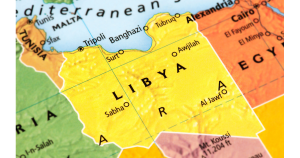Brussels – Rome – New York, 27 January 2015
On 26 January 2015, the Aga Misdemeanour Court handed down a two year and three month sentence and a fine of EGP 500 following the conviction of Dr Raslan Fadl for manslaughter and committing female genital mutilation (FGM) on thirteen-year-old Soheir Al-Batea in June 2013. The girl’s father, who procured Soheir to be subjected to the mutilation, received a three-month suspended sentence. Yesterday’s verdict reverses a lower court’s November 2014 acquittal of Dr Fadl and the girl’s father, which the General Prosecutor had immediately appealed.
Statement by Alvilda Jablonko, Gender and Human Rights Program Coordinator of No Peace Without Justice:
“No Peace without Justice (NPWJ) and the Nonviolent Radical Party Transnational and Transparty (NRPTT) welcome yesterday’s verdict in the first FGM trial held in Egypt as a significant milestone in the country’s legal struggle to address this violation of human rights. This verdict sends a strong message that anyone who flouts the law by perpetrating this human rights violation will be held accountable and further demonstrates that the judiciary is finally taking necessary steps to protect women and girls from this form of violence.
“FGM has been a criminal offence in Egypt since 2008, when legislation was adopted in reaction to the highly publicized death of a girl who had been subjected to FGM the previous year, and following years of advocacy by civil society and certain government institutions, including on the occasion of the Conferences organized in 2003 and 2008 jointly by No Peace Without Justice and the National Center for Childhood and Motherhood, among others. However, until the trial of Dr Fadl and Soheir’s father, no prosecutions had taken place since the law had been adopted. Egypt has one of the highest prevalence rates in the world, with at least 90% of Egyptian women between the ages of 15 and 49 having undergone FGM, according to the 2008 Egyptian Demographic Health Survey study, most of them in a medicalized context.
“NPWJ and the NRPTT have constantly stressed that the adoption and the enforcement of explicit and effective legislation, backed by sanctions, banning all forms of FGM are fundamental and crucial factors to successfully combat this human rights violation and promote its elimination. In addition to holding perpetrators to account, legislation protects and provides the legal tools for women and girls willing to challenge the social convention by refusing to undergo FGM, and also establishes the legal environment that legitimizes and facilitates the work of anti-FGM activists and women’s rights groups”.
“The majority of countries worldwide still lack legislation to protect women and girls; where laws have been enacted, political will to implement them effectively has not always followed. NPWJ and the NRPTT appeal to all states in which FGM is perpetrated to enact and enforce legislation to unequivocally prohibit FGM as well as to provide strong and clear support for the innumerable human rights groups, women’s associations and individual advocates that fight a daily battle to bring an end to this human rights violation ”
Useful links:
For more information, contact Alvilda Jablonko, Coordinator of the FGM Program, on ajablonko@npwj.org / +32 2 548 39 13 or Nicola Giovannini, on ngiovannini@npwj.org /+32 (0)2 548 39 15.




